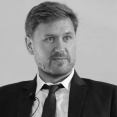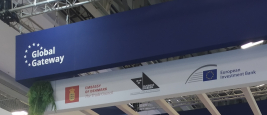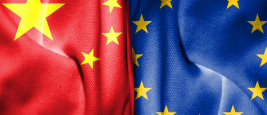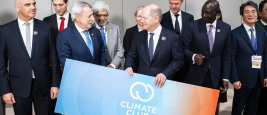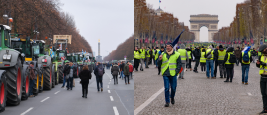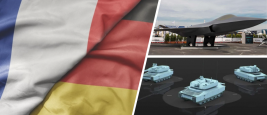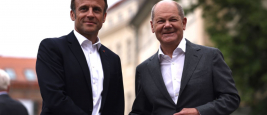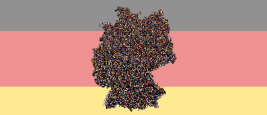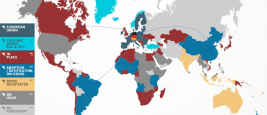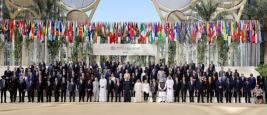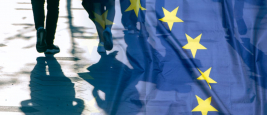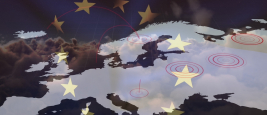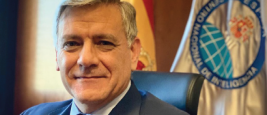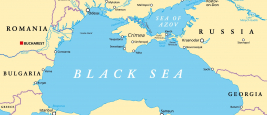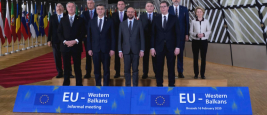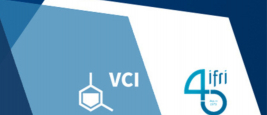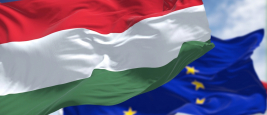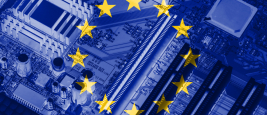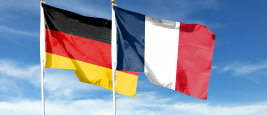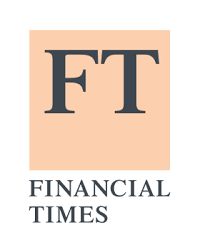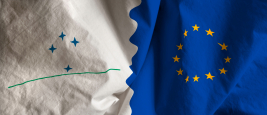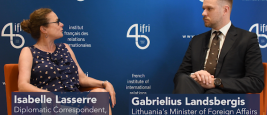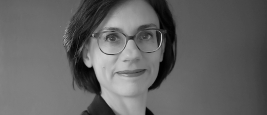While solar photovoltaic (PV) installations are booming in Europe (and in other parts of the world), the local industry is closing down. Over the past two years, the European installed solar PV capacity has been multiplied by two. On the other hand, the remaining European manufacturers of...

Europe
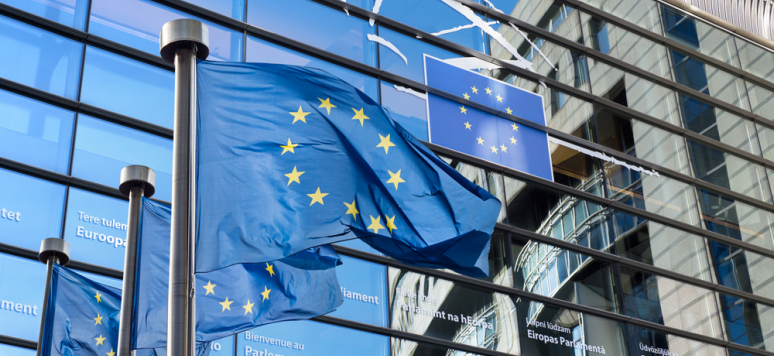
European issues are transversely covered by most of Ifri's centers and programs.
Some programs pay particular attention to these themes: the Study Committee for French-German relations (CERFA), the French-Austrian Center for European Convergence (CFA).
All European themes — institutional, economic, citizenship, security — are subject to specific studies and debates.
Advisor to the Executive Chairman, editor-in-chief of Politique étrangère and co-director of RAMSES
...Special Advisor to the President for European Affairs
...Secretary General of the Study Committee on Franco-German Relations (Cerfa)
...Research Fellow, Study Committee on Franco-German Relations (Cerfa)
...Associate Research Fellow at the Austro-French Centre for Rapprochement in Europe (ÖFZ)
...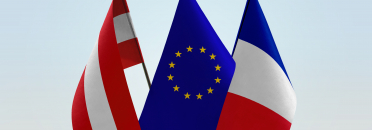
Transport, energy, water and telecommunications infrastructures are vital for economic development. These infrastructures are also fundamental for the achievement of the 2030 Sustainable Development Goals (SDGs), which have suffered a setback notably due to the Covid-19 pandemic, wars and weak...
As the European Union (EU) prepares for a new round of parliamentary elections, how should the bloc consider its strategy towards China?
With the war in Ukraine, Germany’s “traffic light” coalition government has had to adapt its climate policy to the upheavals caused by this war, which has turned its economic, energy, and military model upside down. Against a backdrop of high energy costs and increasing calls for reshoring in...
The influence of different protest cultures on democracy in Germany and France is complex. The protest takes various forms, serves as political representation, and contributes to the formation of political opinion.
Influences and developments within German agricultural policy have undergone significant transformations over the past 70 years, especially in the context of the dynamic Franco-German relations and the pivotal role both nations play in shaping the European Union’s Common Agricultural Policy ...
The FCAS (Future Combat Air System) and the MGCS (Main Ground Combat System) represent the latest chapter in a more than seven decades-long history of Franco-German defense co-operation.
As the doors of the illustrious Hôtel Beauharnais on Rue de Lille 78 swung open on the evening of 4 October, and the masses streamed into the German Embassy in Paris to celebrate German Unity Day, the reports of the currently strained state of Franco-German relations seemed...
The debate about labor shortages has been long dominating the German public debate. It has been pushed to the agenda again in the context of recent reforms in migration policy. Paradoxically, Germany boasts a robust population size, a significant labor force, and a notably larger proportion of...
As one of the most successful trading blocs, the European Union (EU) sees itself confronted with the erosion of the global rules-based trading system and trade becoming increasingly weaponized.
Foreign Climate Policy – Fostering Energy Transition and Combatting Climate Change Worldwide Webinar
On December 6, 2023 during the COP28, Germany presented its new Strategy on Climate Foreign Policy. The strategy seeks to build strong partnerships with countries worldwide in the fight against climate change, maintaining biodiversity and securing renewable energy sources.
Migrations Challenges in National and European Politics Hybrid Conference
Migrations, prompted by rising insecurity, socio-economic disparities and environmental poverty, are back on the top of the EU’s political agenda. To consolidate the EU’s approach in this policy-area, the European Parliament and Council adopted in December 2023 a New Pact on Migration and...
Hybrid Threats – Tasks and Challenges for the Intelligence Community Brown Bag Seminar Series
Ifri is pleased to announce the fourth conference in our intelligence series, in partnership with the Intelligence College in Europe, the purpose of which is to analyze the threat landscape through the eyes of senior officials from various European countries.
A Threat Assessment from Spain: the Sahel and Beyond Brown Bag Seminar Series
Ifri is pleased to announce the third conference in our intelligence series, in partnership with the Intelligence College in Europe, the purpose of which is to analyze the threat landscape through the eyes of senior officials from various European countries.
Strategic positioning and energy challenges for Türkiye in the Black Sea Conference
The Black Sea has become a battleground in the Russian-Ukrainian war. While Moscow asserts its ambitions for power at sea and on land, Ankara controls maritime access through the strait. Turkey plays the role of mediator to ensure the security of grain and hydrocarbon...
Rethinking EU Enlargement in the Western Balkans Conference
The Western Balkans have been on the EU path for more than twenty years now, without really getting closer to EU accession. Their European perspectives took a new turn with Russia’s aggression against Ukraine.
Reconciling the Green Deal with Europe’s Competitiveness – What Industrial Policy is needed? Videoconferences
Europe has embarked upon a vast process of decarbonizing its economy by 2050. The EU approach to guide this collective transformation within only 30 years is marked – as currently designed – by means of regulatory pressure and a myriad of legislative pieces.
Hungary, European Democracy and the Rule of Law in the Age of Geopolitics Seminar - This event will be held in presential at the Central European University in Budapest or to follow in livestream.
The outbreak of Russia’s war in Ukraine, with its international repercussions, has shaped new geopolitical realities and affected the continent in profound ways.
City diplomacy in Africa: a promising tool? Conference hybride
Cities and, more broadly, local and regional authorities play an important role in achieving the Sustainable Development Goals (SDGs).
Breakdown of continental partnership is a threat to Europe – and could be catastrophic for Ukraine. It was meant to be a patching up of the notoriously fraught Macron-Scholz relationship, a “reset”, to borrow Hillary Clinton’s expression.
As the vital relationship between Franco-German leaders Olaf Scholz and Emmanuel Macron appears “broken”, hopes for a sustainable fix rest on the Weimar Triangle and even the return of an old nemesis.
Allies fret that Franco-German animosity is undermining western unity over Ukraine. Emmanuel Macron will arrive in Berlin on Friday for talks designed to repair a fractured Franco-German relationship marred by caustic public spats and mutual recriminations over the war in Ukraine.
The agreement EU-Mercosur It has been a banner of the recent protest by French farmers, who denounced unfair competition on the part of South Americans. However, if Paris closes the door to this pact, the way will be left clear to China, warn politicians and analysts consulted by EFE...
After more than 200 blue stars were stenciled on buildings in and around Paris, prosecutors say they are investigating whether a foreign intermediary paid a couple to spray paint them.
Politics and business can be intertwined in many ways but also conflicting. This is especially the case regarding foreign investments and possible influence by third countries in Europe, for example.
HAMBURG, Germany -- Chinese Premier Li Qiang avoided public clashes on a high-profile visit to Germany and France this week, in what analysts see as a sign of the European nations' reluctance to alienate Beijing.
On 8 June, Ifri welcomed the Lithuanian Foreign Minister, Gabrielius Landsbergis. Isabelle Lasserre, diplomatic correspondent at Le Figaro, conducted a video interview with the minister.
French President Emmanuel Macron's call for Europe to steer clear of a Taiwan conflict -- rooted in France's pride and deep-seated resistance to following America's lead -- has raised questions about where he and Paris really stand on China.
More realistic posture would strengthen Paris' role in Indo-Pacific region







